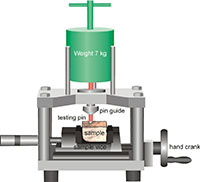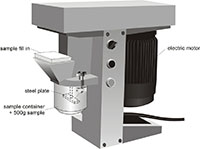|
The "Abrasiveness" of a rock or rock mass describes its ability to cause wear on rock enganging tools - like drill bits, picks or disc cutters. The growing economic pressure on tunnelling and mining operations worldwide has lead to an increasing importance of investigation methods for assessing the abrasivity of rock and soil. Such investigations can be based on a wide variety of testing procedures and standards covering a wide span of scale, ranging from on-site real-scale drilling tests to model tests with simplified tools (as for instance the CERCHAR and LCPC-test) and microscopic and chemical analysis of rocks and minerals. Our team of specialised geologists is able to perform any of the above mentioned investigations in any phase of your project. You may find more detailed papers and concepts in our download area. In order to provide representative samples for laboratory investigations we prepare sampling concepts and carry out soil and block sampling or hardrock core drillings with our own equipment. In the course of laboratory investigations we may assist your project in all phases of investigation, either by providing concepts and testing recommendations, by performing specialised abrasivity tests (like CERCHAR testing with our own equipment) or by coordinating specialised testing institutes and interpretating the incoming data. |
CERCHAR-testing device (so-called "WEST-device")
LCPC testing device |




